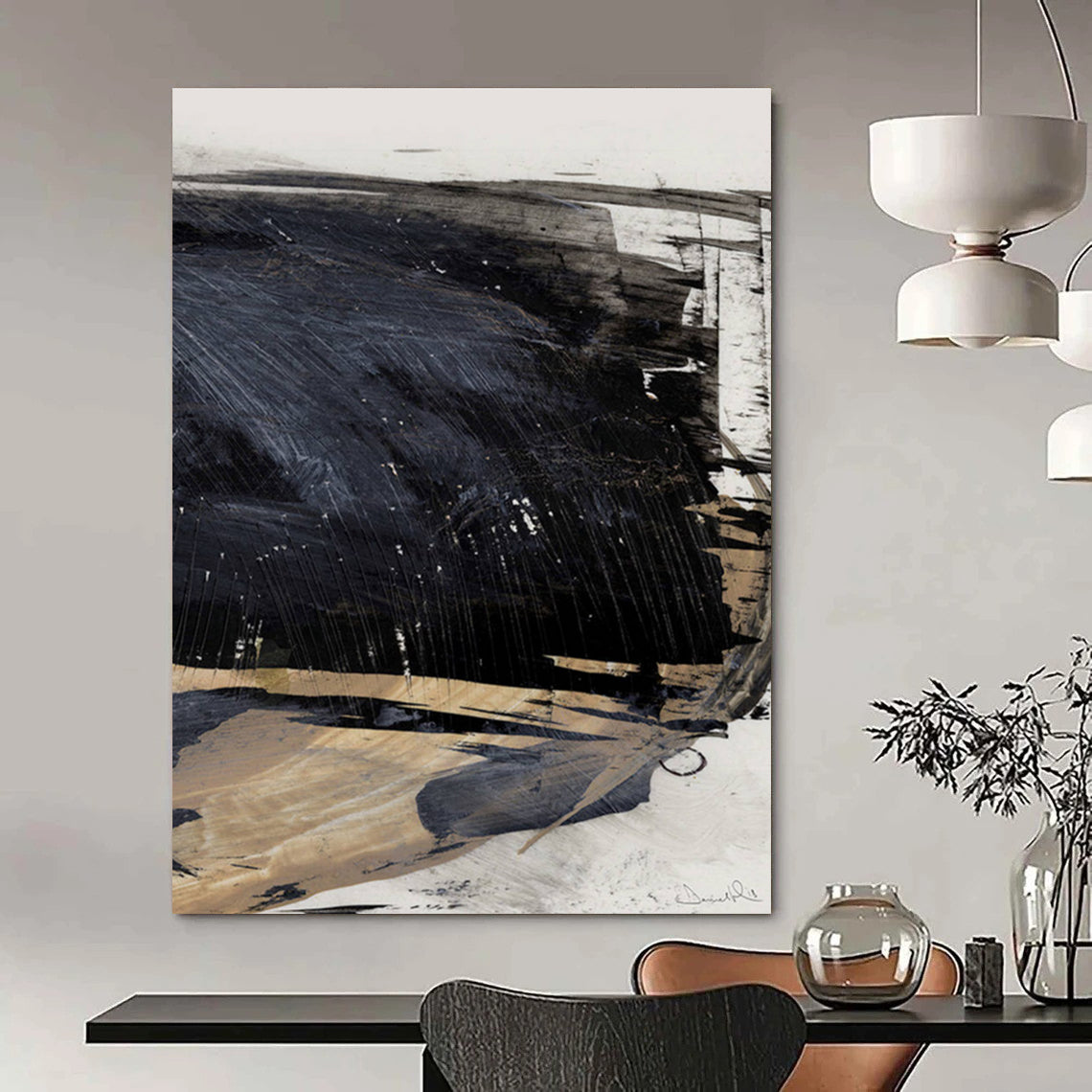Brown Abstract Art is an evocative branch within the larger world of abstraction that leverages the earthy richness and depth of brown hues to forge connections between the viewer, the canvas, and nature itself. As trends in interior and fine art shift toward organic warmth and soothing palettes, these works are gaining new admirers who seek sophistication and a sense of grounding in both homes and galleries. For a curated visual journey and to explore available pieces, discover this dedicated collection of Brown Abstract Art.
The Expressive Power of Brown in Abstract Art
In abstract art, color is king. Brown, often overlooked in favor of bolder hues, infuses artworks with subtlety, elegance, and organic complexity. From creamy taupe to deep umber and chocolatey browns, these tones evoke comfort, stability, and a connection to the earth. Brown abstract painting is a study in balance: it draws the eye with gentle contrast and intricate layering rather than dazzling vibrancy, yet the emotional resonance can be profound.
Brown abstract art is not just about minimalism—the layering of shades, the play of texture and shadow, and the monochromatic palette all work together to invite the viewer into a sophisticated visual dialogue. This “quiet complexity” allows brown abstract works to hold their own as timeless statement pieces in both contemporary and classic interiors, focusing attention on form and composition over flashy color schemes.

Masters Who Harnessed Brown’s Depth
Several renowned artists have masterfully incorporated brown into their abstract work, each using the color as a vehicle for innovation and emotional depth:
-
Mark Rothko is famed for his immersive color field paintings that often make use of brown, black, and burnt orange. In works such as No. 21 (Red, Brown, Black and Orange), Rothko’s layered blocks of color float within the canvas, creating a meditative space for viewers to confront their own feelings and responses.
-
Jackson Pollock embraced brown in his signature drip paintings. Autumn Rhythm (Number 30) highlights how brown’s organic tones can be both soothing and dynamic. The work’s title and palette evoke the season’s calm and complexity, using controlled chaos to capture autumn’s essence.
-
Pablo Picasso, known largely for Cubism, produced seminal canvases—such as Violin and Palette and Ma Jolie—where various brown hues were essential in breaking reality into geometrical fragments, adding to the works’ sense of depth and solidity.
-
Cecily Brown, a contemporary British painter, is widely recognized for her large-scale works that balance figuration and abstraction, often utilizing rich brown tones for both their sensuality and their nod to classical origins in Western painting. Her paintings pulse with movement and ambiguity, providing endless room for interpretation.
-
Wassily Kandinsky, while known for a varied palette, deployed brown—sometimes unexpectedly—to ground his explosive compositions, illustrating the color’s flexibility in the service of spiritual and physical resonance.
Brown Abstract Art in Contemporary Spaces
Collectors and designers are increasingly turning to brown abstract paintings for their ability to harmonize with modern spaces. The neutral yet nuanced palette integrates seamlessly into minimalist, eclectic, or even luxurious interiors, fostering an atmosphere of calm, warmth, and organic elegance. The monochrome nature of brown abstract art is uniquely suited for those seeking minimalist sophistication that also maintains visual interest and subtlety.
Inspirational Blog Resources
Deepen your understanding, discover design inspiration, and explore critical conversations about Brown Abstract Art through these high-authority blog articles:
-
How Abstract Art Transforms Modern Interiors discusses the emotional and design impact of abstract art within contemporary homes.
-
Famous Abstract Artists and Their Impact features pioneers like Kandinsky, Rothko, and more, exploring how their innovations have shaped the movement.
-
Brown Abstract Paintings: Subtle Sophistication explains the unique warmth and organic appeal that brown abstract works bring to any space.
-
Black Abstract Artists Are Finally Being Recognized by the Art Market explores the vital contributions and recognition of Black abstract artists, many of whom use brown as a symbol of identity, landscape, and memory.
-
Cecily Brown: A Modern Master provides an in-depth profile of Cecily Brown’s technique, influences, and the enduring impact of her lush, textured canvases.
Notable Works to Explore
Explore masterpieces by artists who embraced brown in their abstract art, such as works by Mark Rothko, Jackson Pollock, Cecily Brown, Pablo Picasso, and Wassily Kandinsky. Their innovative use of the brown palette offers timeless examples of the color’s power.
Brown Abstract Art as an Investment
Beyond aesthetic pleasure, brown abstract pieces hold their value over time. The versatility, emotional depth, and historical significance of these works make them sound investments for collectors who want more than fleeting trends—pieces that speak to lasting beauty and substance.
FAQ
What defines Brown Abstract Art?
Brown Abstract Art is defined by its use of brown’s varied shades and tones within a non-representational (abstract) format, focusing the viewer’s attention on form, rhythm, and emotion instead of literal depictions.
Which artists are famous for using brown in abstract art?
Notable artists include Mark Rothko, Jackson Pollock, Cecily Brown, and Pablo Picasso, all of whom utilized brown’s depth and versatility in their signature works.
Why is brown abstract art popular in modern interiors?
Its earthy elegance and neutrality allow brown abstract paintings to harmonize with nearly any decor, from minimalist to opulent, while providing warmth and subtle sophistication.
Are there contemporary artists working in brown abstract art?
Absolutely. Artists like Cecily Brown continue to innovate, blending tradition with fresh approaches that speak to both modern and timeless sensibilities.
Where can I view or purchase Brown Abstract Art?
Explore a dedicated collection of Brown Abstract Art or browse respected online galleries such as Saatchi Art and Wrightson Arts.

